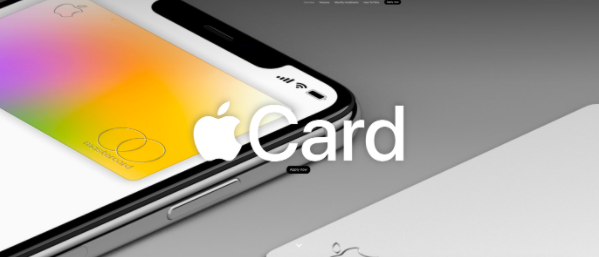Around three months ago, Apple launched a credit card called the Apple card. It only reports to TransUnion and is backed and supported by a large bank called Goldman Sachs.
There have been a few rumors spreading where consumers have claimed that their Experian reports have moderately changed after they started using the Apple Card. However, there is no evidence to support the allegations. There is no proof on the report that the Apple card is the reason they have changed. Moreover, Apple does plan to report to Experian or Equifax in the future, but that is not the case currently. The user agreements state they only report to TransUnion.
What are the requirements to be eligible for an Apple card?
To apply for an Apple card, a consumer has to fulfill the following requirements:
- The consumer has to be an Apple user; meaning has to have a personal Apple ID.
- The payments cannot be past the due dates on any open accounts. However, there is a lack of specificity in this requirement. Will they look at more than twelve months or less? And how much past the due? 30 days? 60 days? It is safe to deduce that being 90 days late will raise red flags.
- The consumer cannot have a bank account or a checking account, which was closed out voluntarily due to insufficient funds or non-payments. This action cannot appear on the consumer’s record. These reports are derived from ChexSystems.
- The consumer cannot have two or more past due non-medical collections. They can have medical collections, but not two or more non-medical collections.
- The consumer cannot have a tax lien, nor have a judgment, or a foreclosure.
- There cannot be recent bankruptcy in the consumer’s history. Although the guidelines do not specify how current, but using an example of mortgage parameters, the mortgage companies do not want to see a bankruptcy on the record within the last three years. If the bankruptcy took place maybe four/five years ago or more, the consumer is qualified for an Apple Card. Bankruptcy in the last two to three years may not make a consumer eligible.
- The consumer cannot have a high debt to income (DTI) ratio. They look at income, and they look at monthly debt obligations. High probably means 50 percent on the DTI, as they have yet again no specified.
- The consumer cannot have maxed out credit cards in the last three months.
- There cannot be three or more recent hard inquiries. This one is based on an assumption as companies, while usually checking credit card applications, consider more than three hard inquiries in the last three months a red flag.
- The consumer has to have a FICO 9 (Fair Isaac Corporation) score of more than 600 or better with TransUnion.
A thorough background check is conducted when applying for an Apple Card, as seen above, and every requirement has to be met.
They look at checking account data because there is no way to find out if the consumer had a bank account closed on them due to non-payment unless they reported to ChexSystems or another platform. And they will look at credit card reports as well.
They also look at a public record database, such as LexisNexis, because they ask for no tax liens, no judgments, no bankruptcies, and no foreclosures. All of this information and more is reported to LexisNexis. For the debt to income ratio, they will look at the income stated on the application.
There are many specific requirements to be approved for the Apple Card; it has to be worth it.
What happens when a consumer is denied an Apple Card?
If a consumer’s application is declined for an Apple Card, some consumers may be directed towards the “Path to Apple Card” program. It is up to the consumer if they want to opt-in for the program. If they decide to, they will be provided with monthly updates on their progress.
In this program, the consumer’s credit will be monitored for the next few months, and if they show specific behavior patterns and improvements, they will be eligible for the card. This program is designed for consumers who are on the borderline, at 550 or 580, and who have an excellent foundation to become eligible in a few months. The consumers can then reapply after six months of being monitored by the program.
This program is an excellent initiative, as other credit card companies provide a decline letter. They do not give the consumers any helpful advice on how to improve their records.

